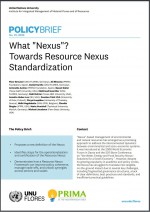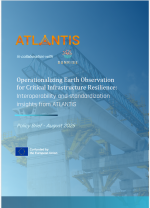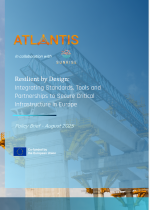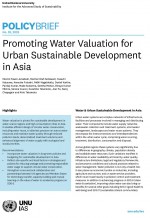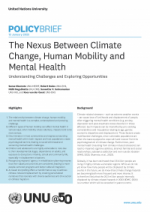A Regional Overview of Gender Sensitive Dimensions in the European Agricultural Sector
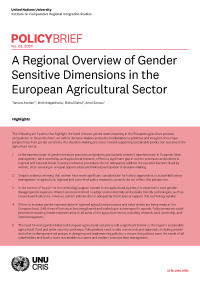
Publication Date:
2024
Pages:
10
Series Title:
UNU-CRIS Policy Brief
Publication Language:
EN
Copyright Year:
2024
Policy Brief Type:
Abstract:
The following are 5 points that highlight the need to boost gender mainstreaming in the European agriculture process and policies. In this policy brief, we call for decision-makers and policy bookmakers to prioritise and integrate the unique perspectives from gender sensitivity into decision-making processes toward supporting sustainable production systems in the agriculture sector.
- Underrepresentation of gender-sensitive practices and policies, particularly women’s representation in European farm management, land ownership, and agricultural research, reflects a significant gap in current processes and policies at regional and national levels. Existing normative procedures do not adequately address the systemic barriers faced by women, often resulting in unequal opportunities and limited participation in decision-making.
- Despite evidence showing that women have more significant consideration for holistic approaches to sustainable water management in agriculture, regional and state-level policy measures currently do not reflect this perspective.
- In the context of ‘buy-in’ for the technology support system in the agricultural system, it is essential to note gender-disaggregated responses. Women are more inclined to adopt environmentally and socially friendly technologies, such as nature-based solutions. However, current policies do not adequately incentivise or support this technology uptake.
- Efforts to increase gender representation in regional agricultural processes and value chains are being made at the European level. Still, these efforts must be strengthened and scaled up in a time-specific agenda. Policy measures could prioritise increasing female representation in all areas of the agriculture sector, including research, land ownership, and farm management.
- The need for more gender-balanced European agricultural systems is still a significant barrier to the region’s sustainable agricultural (food and water security) pathways. Policymakers need to take a more inclusive approach, including women and other underrepresented groups, in designing and implementing policies to ensure that policies meet the needs of all stakeholders and lead to more sustainable outcomes and resilient societies.

